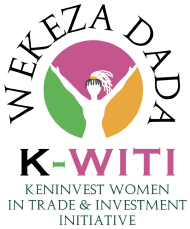President Uhuru Kenyatta has rallied Portuguese investors, entrepreneurs and captains of industry to make Nairobi the fulcrum of their business interests and investments in Africa. He said Kenya’s immense commercial potential, in almost all sectors of the country’s expanding economy and the cosmopolitan configuration of her population makes Nairobi the ultimate destination for Portuguese investment. “We are a melting pot where we welcome people from all parts of the world so long as they come in peace. So long as they come in the name of trading, working and working together, we welcome people. “I was reminded yesterday that Nairobi has been voted as the best city for expatriates to live, find accommodation. You can make you base for your African operations out of Kenya and we are more than willing to work and support you in that endeavor,” he said. The President spoke on Wednesday in Lisbon when he joined his Portuguese host Marcelo Rebelo de Sousa at the official opening of the Kenya-Portugal Business Forum on the last day of his two-day state visit of the Portuguese Republic. The business meeting was organised by the Kenya Investment Authority (KenInvest) and its Portuguese equivalent, AICEP Portugal Global, to explore business partnership and investment opportunities by Kenyan and Portuguese captains of industry, entrepreneurs and business leaders. At the meeting, also attended by Foreign Affairs CS Raychelle Omamo and his Tourism counterpart Najib Balala, the President regretted that despite the two countries having a long history of bilateral ties, the volume of trade flow between Nairobi and Lisbon remained low. “I do believe there is still much scope for deeper bilateral works between our two countries. We seek to deepen that because it is unfortunate for two countries with such strong trading and private sector base are only dealing with very minimal amounts. The trade between our two countries, the investment between our two countries is very minimal in comparison with the opportunity THAT exists,” he said. President Kenyatta pledged continued Government support to Portuguese investors seeking investment opportunities in Kenya, saying his administration had established a conducive business environment. On the available investment opportunities in Kenya, President Kenyatta encouraged Portuguese investors to consider tapping into the country’s thriving ICT, health and infrastructure sectors. “You have wide experience, especially in the infrastructure, healthcare and ICT sectors. And I do believe we can do a lot more together. We have very strong ICT credentials. “We have a very young and technically savvy population and generation. What we need to do is to ensure that these start-ups now become unicorns that are able to compete in the global environment,” he said. President Kenyatta underscored the importance of the strong Kenya-Portugal partnership, saying the relationship is anchored on “long standing political, cultural and economic ties”. “I believe that there is a lot of opportunities. A chance for us to work strongly together. A chance for us to do great things together. A chance for us to prosper together. “The opportunities that we lay out will only become real. Will only be converted to prosperity and jobs if we actively engage,” President Kenyatta said. On his part, President de Sousa assured Kenya of a “forever partnership” with the Government and the people of the Portuguese Republic. “This is a unique opportunity for us to do more and more, and better and better. For you to help us to do more and more, and better and better but also for you to invest more in Portugal. “We must have more tourism coming from Kenya. We must have your investment here and share this investment with Portuguese partners,” the Portuguese leader said. The Kenyan business delegation at the forum, also attended by Principal Secretaries Johnson Weru (Trade), Nancy Karigithu (Shipping) and Chris Kiptoo (Environment), was led by KEPSA CEO Carole Kariuki. President Uhuru Kenyatta has rallied Portuguese investors, entrepreneurs and captains of industry to make Nairobi the fulcrum of their business interests and investments in Africa. He said Kenya’s immense commercial potential, in almost all sectors of the country’s expanding economy and the cosmopolitan configuration of her population makes Nairobi the ultimate destination for Portuguese investment. “We are a melting pot where we welcome people from all parts of the world so long as they come in peace. So long as they come in the name of trading, working and working together, we welcome people. “I was reminded yesterday that Nairobi has been voted as the best city for expatriates to live, find accommodation. You can make you base for your African operations out of Kenya and we are more than willing to work and support you in that endeavor,” he said. The President spoke on Wednesday in Lisbon when he joined his Portuguese host Marcelo Rebelo de Sousa at the official opening of the Kenya-Portugal Business Forum on the last day of his two-day state visit of the Portuguese Republic. The business meeting was organised by the Kenya Investment Authority (KenInvest) and its Portuguese equivalent, AICEP Portugal Global, to explore business partnership and investment opportunities by Kenyan and Portuguese captains of industry, entrepreneurs and business leaders. At the meeting, also attended by Foreign Affairs CS Raychelle Omamo and his Tourism counterpart Najib Balala, the President regretted that despite the two countries having a long history of bilateral ties, the volume of trade flow between Nairobi and Lisbon remained low. “I do believe there is still much scope for deeper bilateral works between our two countries. We seek to deepen that because it is unfortunate for two countries with such strong trading and private sector base are only dealing with very minimal amounts. The trade between our two countries, the investment between our two countries is very minimal in comparison with the opportunity that exists,” he said. President Kenyatta pledged continued Government support to Portuguese investors seeking investment opportunities in Kenya, saying his administration had established a conducive business environment. On the available investment opportunities in Kenya, President Kenyatta encouraged Portuguese investors to consider tapping into the








